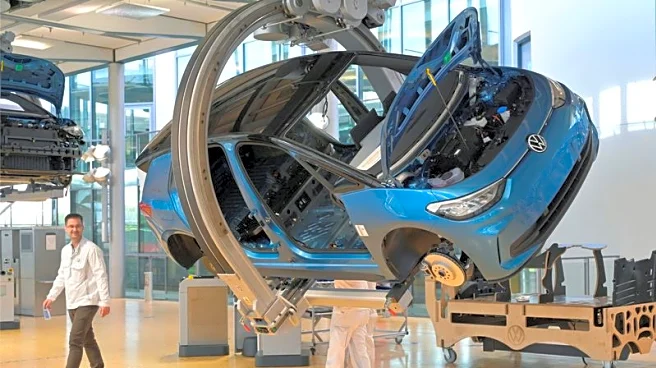Rapid Read • 9 min read
Prenuvo, a company offering whole-body MRI scans, is gaining attention for its potential to detect serious health conditions such as cancer and aneurysms before symptoms appear. The scan, which is non-invasive and radiation-free, has been endorsed by celebrities like Kim Kardashian and Kris Jenner. Despite its high cost of $4,500, the scan is being considered by some as a breakthrough in preventative health care. The process involves a comprehensive MRI scan of the entire body, followed by a detailed consultation with medical experts. While the scan can provide valuable insights into one's health, it is not a replacement for traditional screenings like colonoscopies or mammograms. Medical professionals emphasize that it should be used as a supplemental tool rather than a substitute for standard medical practices.
AD
The introduction of whole-body MRI scans by Prenuvo represents a significant development in the field of preventative health care. By potentially identifying health issues before symptoms arise, these scans could lead to earlier interventions and better health outcomes. However, the high cost and the potential for false positives raise questions about accessibility and practicality for the general population. The scans are currently recommended for individuals with a high risk of certain diseases, but their widespread adoption could be limited by financial and logistical constraints. The debate over the efficacy and necessity of such comprehensive screenings highlights the ongoing challenge of balancing advanced medical technology with cost-effective health care solutions.
As Prenuvo continues to refine its technology and potentially reduce costs through the use of artificial intelligence, the accessibility of whole-body MRI scans may increase. This could lead to broader adoption among health-conscious individuals and those with specific health concerns. However, the medical community remains cautious, emphasizing the need for these scans to complement, not replace, existing medical screenings. Ongoing research and patient feedback will likely shape the future role of whole-body MRIs in preventative health care, determining whether they become a standard part of health assessments or remain a niche offering for those with the means to afford them.
The ethical implications of whole-body MRI scans include the potential for 'scanxiety'—anxiety caused by incidental findings that may not be clinically significant. This raises questions about the psychological impact of advanced screenings and the responsibility of medical professionals to manage patient expectations. Additionally, the use of such technology could exacerbate health disparities if it remains accessible only to those with significant financial resources. The long-term cultural shift towards proactive health monitoring may also influence public perceptions of health and wellness, potentially redefining what it means to be 'healthy' in a technologically advanced society.
AD
More Stories You Might Enjoy












